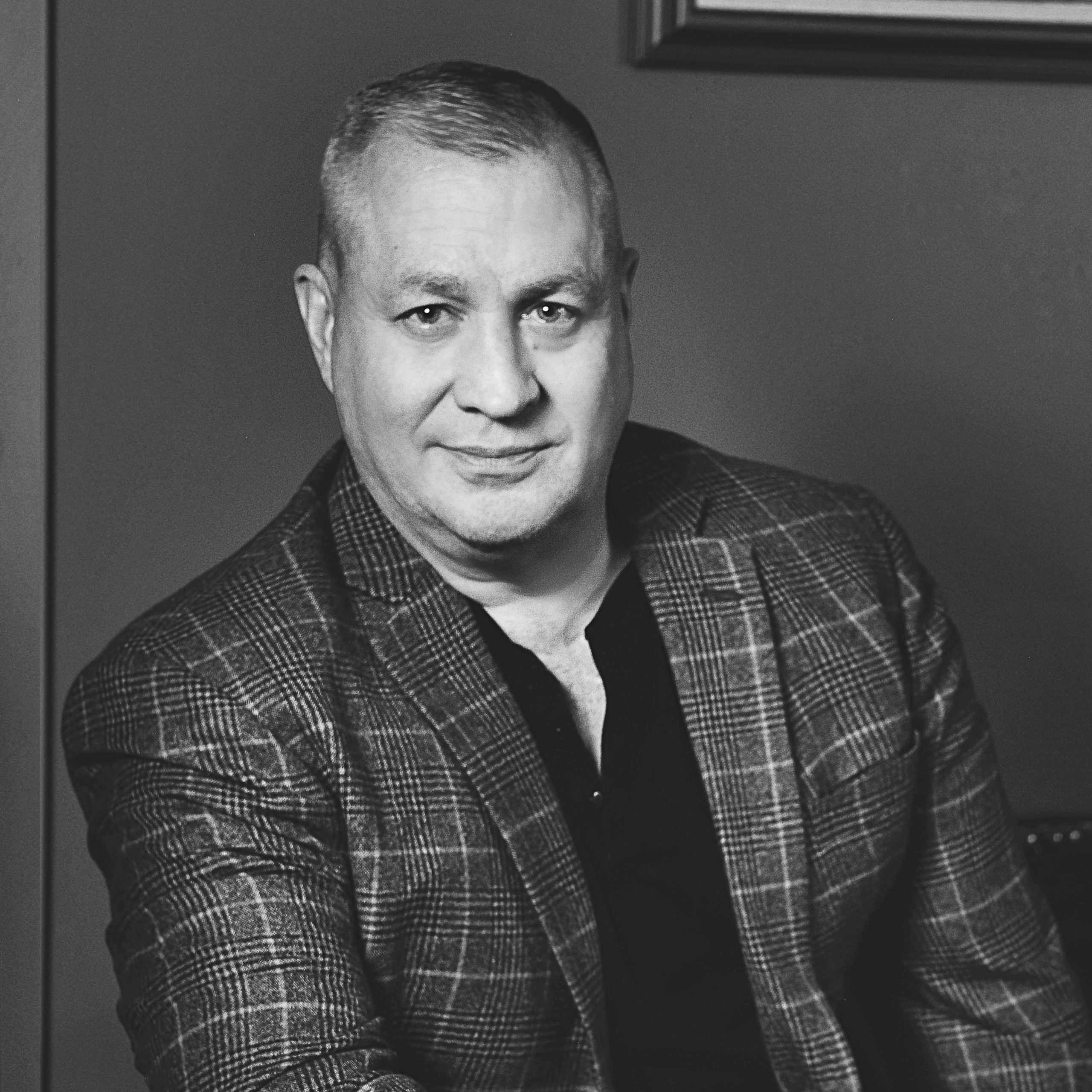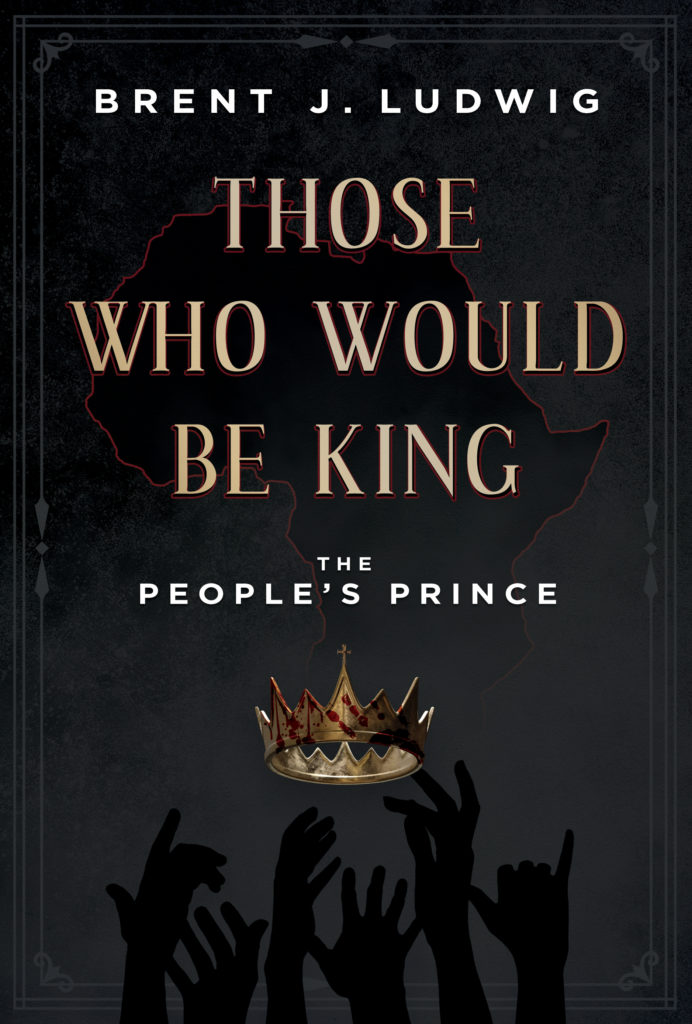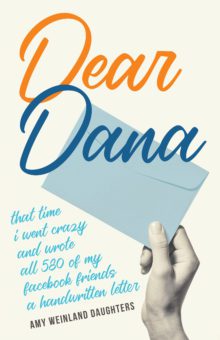
Brent J. Ludwig
Calgary, Alberta (Canada)
Reformed Lawyer and Author of Those Who Would Be King: The People’s Prince
BOOK COVER

BOOK DETAILS
Pub Date: July 11, 2023
Genre: Action/Adventure, Historical Fiction
Publisher: Greenleaf Book Group
Page Count: 272
Format: Hardcover
ISBN: 979-8-88645-063-7
Price: $29.95 US/$38.95 CAD
NetGalley: https://www.netgalley.com/catalog/book/282958
ABOUT THE BOOK
An 11-year old African boy swears upon the soul of his dying pregnant mother that he would look after her soon-to-be-born baby. He seizes an opportunity to fulfill his mother’s wish by switching his brother with the heir to the throne of the country Maleziland. When the switch is discovered 14 years later, those who would be king begin their campaigns to seize the throne and the riches that go with it.
King Mabanda, ruler of Maleziland, controls his country through divine right with a violent, omnipotent hand. The king’s son, Mandebala, is also a loathsome tyrant-in-training who has grown up with the opulence and privilege of an uber-wealthy prince. But when the king meets Shigeku, the only captive survivor of a border war with a neighboring nation, the prisoner tells of switching his own brother at birth with the king’s actual son.
The king immediately extricates his true heir, Mateyo, from his run-down shanty and ensconces him in the royal palace to take his rightful place as the crown prince of Maleziland, while Mandebala is thrown out of the palace and forced to live in the nearby slums. The benevolent new prince experiences the trappings and privileges of wealth and power, and ultimately embarks upon an economic plan for Maleziland that will enable the country to become economically prosperous and self-sustaining. Meanwhile, the true brothers Shigeku and Mandebala plot to overthrow the regime so corruption and self-serving depravity can again reign supreme.
This powerful novel—full of twists and turns, heroes and villains– explores the corruption of power, the legacy of colonialism, and the putative integration of democracy. Written as a fast-paced action/adventure novel, Those Who Would Be King: The People’s Prince also explores the current underlying developmental challenges facing sub-saharan Africa, and seeks to enlighten and educate western world readers on the challenges facing the Dark Continent.
ABOUT THE AUTHOR
Brent J. Ludwig is a reformed lawyer who currently runs his own boutique headhunting firm in Calgary and Vancouver, Canada. Brent practiced securities/mergers & acquisition law in Toronto, Vancouver, and Calgary, but did not let it stifle his love for storytelling and writing, first inspired while completing his undergraduate degree at St. Thomas University in New Brunswick. As a “mining brat” child, Brent’s family moved every year to remote towns, nurturing his broad, pan-Canadian outlook and an equally endearing and embarrassing small-town personality.
Brent currently lives in Calgary and spends his spare time cooking, drinking wine, and chasing soccer balls while coaching and shuttling three active children. He has a keen sense of interest in developing nations and trying to help as many people as possible by leveraging his writing and finance talents. Brent is currently working on the second book in the Those Who Would Be King trilogy.
TALKING POINTS
- Why would a white Canadian want to educate people about how democracy and foreign aid affects the underlying economic conditions in sub-Saharan Africa?
- How did Dead Aid by Dambisa Moyo and Heart of Darkness by Joseph Conrad inspire Brent to write Those Who Would Be King?
- Brent can discuss his thoughts on whether we all have a primitive, atavistic nature hard-wired into our DNA that can be brought to the forefront by the right conditions
- Does power corrupt? Does absolute power corrupt absolutely? Is nature (genetics) responsible for a person’s character, rather than nurture (as in where and how you were raised)? And how did colonialism, and the carving up of the African continent impact relations between countries and people?
- How does the plight of First Nations peoples in North America parallel that of the characters in Those Who Would Be King?
- Which African country is the fictional country of Maleziland primarily based upon in Those Who Would Be King? And why?
TIMELY TIE-INS
September
- African Union Day – 9
- International Day of Democracy – 15
INTERVIEW WITH BRENT LUDWIG
How did you come up with the idea for the storyline in Those Who Would Be King?
Quite frankly, I worked backwards from the messages that I wanted to deliver. It was important to me to deliver a high-level story that helped people in the western world understand Africa and some of the challenges she faces. So I thought, “In what scenario would a leader of a country character really want to affect change in his or her home country, rather than continue a succession of leaders who act in a self-serving, selfish manner of governance?” and, “Maybe someone who wasn’t born into a life of privilege would act in the best interests of his or her people.” After that, I had to imagine a storyline where a character would be born with royal blood but grow up as a poverty-stricken commoner, only to then be transplanted into a role as King. With that scenario thought through, I then had to imagine circumstances under which somebody who grew up poor could then become King. And so on and so on.
Have you always been interested in Africa? How did this come about growing up in Canada?
In my high school years in Sussex, New Brunswick, Canada in the early 1980s, a Canadian government development agency and the Province of New Brunswick embarked on an ambitious program: to develop a modern dairy farm in a central African country. As it turns out, a modern dairy cow in Canada produces 5-10 times the volume of milk of an African zebu cow. Great idea; however, the first family from New Brunswick that went there for a two-year period came back after just over a year. Multiple other families took their place, and after 10 years a large-scale, thriving, modern dairy farm was turned over to the local government. Five years later it was done. Kaput. The machinery had all broken down and the cattle were starving. I was close to the first family that moved there, and I marveled at their stories of how kind, friendly and happy the people of this country were, despite their abject poverty and low standards of living. The country was the third poorest in the world by GDP per capita, and yet the people were incredibly nice and giving. Thirty years later, a book called Dead Aid by a Zambian Ph.D., Dr. Dambisa Moyo, piqued my interest in Africa again, and I was much dismayed to learn that the country had not progressed at all since this family returned in the 80s. What was it that kept this country from progressing? Why had democracy failed it, as an elected government took over in 1996 but had not managed to move its people forward?
Have you travelled to Africa?
In April of 2022 I travelled to Africa for the first time. It will not be my last trip. It was an eye-opening, mind-blowing experience. I felt that as a Canadian born white man I simply could not write a novel about Africa without travelling there to get a sense for the countries, their peoples and, frankly, whether or not I got it “right.” I was in the final stages of my “developmental edit” of the book with my publisher, Greenleaf, and my lead editor, Erin Brown. The developmental edit is pretty much the last opportunity to make substantial writing changes to a manuscript, so I had to go. I think I had about 85% of the “feel” right. But my accuracy on the socio-economic and political environment in the subject country of my fictional story benefited significantly from my visit. I met with many business and political leaders who were interested to share their perspectives. I am happy to call these people my friends, all of whom are eager to read my book, fictional or otherwise.
What is your background?
My father was a mining engineer, and virtually every year my parents moved the family to a new small mining town in the middle of nowhere. So I grew up in towns all across Canada: Saskatchewan, interior of British Columbia, Vancouver Island, Canada’s NorthWest Territories, Northern Ontario, New Brunswick, Toronto, Vancouver and Calgary. After completing an undergraduate Bachelor of Arts degree at a small university called St. Thomas University in Fredericton, NB, where I learned my love for history, economics and writing, I moved to Toronto to complete a joint JD(Law)/MBA degree at Osgoode Hall Law School/Schulich School of Business. I practiced Mergers & Acquisitions/Securities law in Toronto, Vancouver and Calgary before starting my own executive search firm focused on corporate finance professionals and senior lawyers. My interest in developing nations has always been strong, and I LOVE a great story. My professors at St. Thomas always loved my research essays, and told me that I “could make money writing stories,” (direct quote from Dr. Dan Gleason, Department of History, STU, 1986). I’m not sure about the making money part of this, but I do love researching and telling a story.
Have you always been a storyteller?
According to my parents, and I’ve heard them say this so often I think that I might even remember it, ever since I was two years old I would tell stories to whomever would listen. “Goldilocks and the Three Bears” was my early fave, and I told it as if it were my own story rather than a much loved and well-known children’s story. When I wrote historical research stories, I always chose factual but interesting subjects, and enjoyed captivating the readers in a tale while conveying historical information. My favourite papers were on Benedict Arnold, a US General in the War of Independence who turned coat as a traitor and was caught on board a British ship of war. He was exiled to Saint John, New Brunswick when Britain lost the war, where he was reviled and run out of town. I also remember a particularly heart-wrenching essay about a leper colony in Northern New Brunswick on an isolated coastal island, which essay told the tale of a young girl suspected of having leprosy who was banished to the island, where years later she died of malnutrition rather than leprosy.
I LOVE a good story. And I love telling them even more.
What would you consider to be a “success” for this book?
I have always focused on doing things that leverage what I do. I think that telling a story that is super-compelling, exciting, interesting and engaging gives my book a chance of reaching many people and shedding some light on the developmental challenges of sub-Saharan Africa. I have tried to incorporate various social, political and economic reform ideas into my novel with a hope of informing readers, at a very high level, of some of the challenges and potential solutions for developing nations in the region. This was of course no easy task—if my objective is to inform as many readers as possible, I had to keep the “teaching” elements of the book high level and engaging. I hope I achieved the right balance, because the more people that find the book compelling and enlightening, the more I will consider it a success. My plan is to fund economic initiatives in sub-Saharan Africa with part of the proceeds of this book.
BOOK DETAILS
Pub Date: May 17, 2022
Genre: Memoir / Christian Inspirational
Publisher: She Writes Press
Page Count: 304
Format: Paperback
ISBN: 978-1647429003
Price: $15.99

